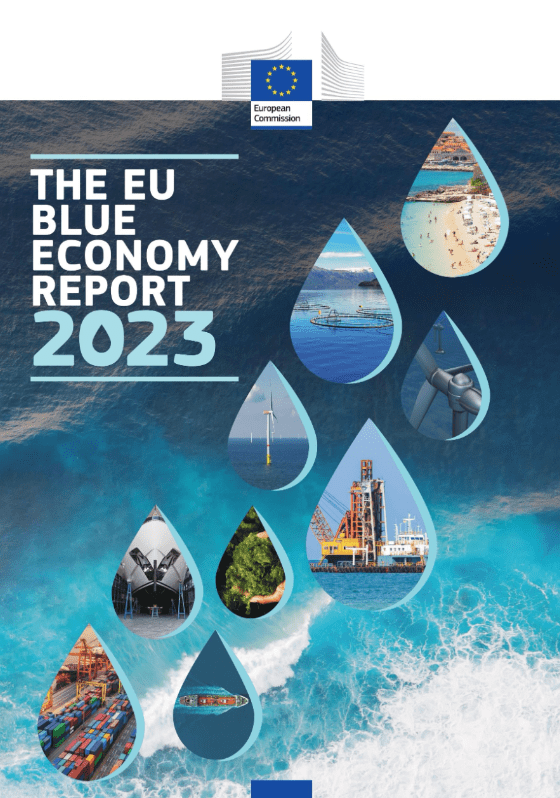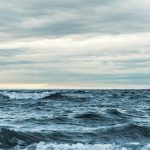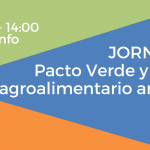June 8 marks World Oceans Day, a date established by the UN to recognize the importance of the oceans to the planet.
The ocean covers more than 70% of the planet. It is our source of life and sustenance for humanity and all other organisms on earth.
To commemorate this day. The CDE of Almeria has developed the following infographic:
EU Blue Economy
The European Union’s blue economy encompasses all industries and sectors related to oceans, seas and coasts, whether they are based directly in the marine environment (e.g. shipping, seafood, energy generation) or on land (e.g. ports, shipyards, coastal infrastructures). According to the most recent Blue economy report, the traditional sectors of blue economy provide 4.5 million direct jobs and generate over 650 billion euro in turnover.
A sustainable blue economy is essential to achieving the objectives of the European Green Deal and ensuring a green and inclusive recovery from the pandemic.
All blue economy sectors including fisheries, aquaculture, coastal tourism, maritime transport, port activities and shipbuilding will have to reduce their environmental and climate impact. Tackling the climate and biodiversity crises requires healthy seas and a sustainable use of their resources to create alternatives to fossil fuels and traditional food production.

The EU blue economy report 2023
|
Joint Statement by the High Representative/Vice-President Josep Borrell and Commissioner for Environment, Oceans and Fisheries Virginijus Sinkevičius
World Oceans Day 2022 is about revitalising our blue planet. On this day, we highlight the fundamental importance of the ocean to life on earth, and the need for a collective global approach to protect and restore the ocean, and to use the ocean´s enormous potential in a sustainable way to the benefit of societies around the globe.
Our ocean is under enormous strain. The World Meteorological Organization has just confirmed that sea level rise, ocean heat, ocean acidification and greenhouse gas concentrations set new records in 2021. Human-caused climate change has made the ocean and marine life vulnerable. We are losing biodiversity at an unprecedented rate. But we need the ocean as it is part of the solution to the global warming. We need to increase its resilience. Pressure on the ocean is high and that is why we ned to put it high on our agendas.
On the eve of the United Nations Ocean Conference in Lisbon, we will renew our Agenda for International Ocean Governance, providing a strong mandate for the EU to lead and contribute globally in promoting the protection and sustainable use of our oceans. We are only starting to scratch the surface of testing innovative ways to strengthen the natural role of the ocean as carbon sinks. The EU is investing €500 million in its ‘Mission Ocean’ under the Horizon Europe research programme for this and other ocean-related actions.
The EU has already teamed up with 40 countries to form a High Ambition Coalition on the conservation and sustainable use of marine biodiversity. We are now calling on all partners to join us in this coalition and to reflect this ambition in a future UN Treaty of the High Seas.
We must take action to protect our planet’s unique but fragile marine ecosystems, which is why the European Union and its Member States have proposed to designate two new marine protected areas in the Southern Ocean of Antarctica.
The EU also wants to tackle without delay the ocean plastic pollution crisis. We have already taken ambitious action at home, by banning some of the most common plastics found as waste on our beaches and in the ocean. The EU will now engage closely with the partners to reach an ambitious global agreement on plastic pollution.
The oceans offer enormous opportunities and untapped potential. The study of deep-sea ecosystems and species, for example, is a source of innovation in the development of new medicines. The waves, tides and winds on our ocean are seemingly endless and clean sources of home-grown energy. Shellfish can help to filter and clean our coastal waters. Sustainable fisheries can provide a steady low-carbon source of food and protein.
We must find real and sustainable solutions to the challenges facing our oceans. It is critical to act now.
More information:






Leave a Reply